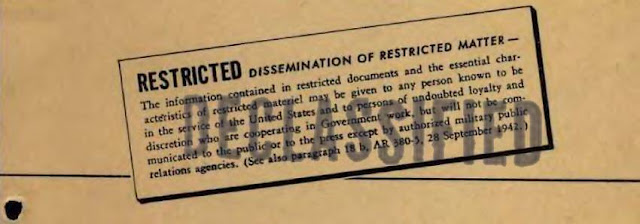Declassified Docs Show NSA Trying To Prosecute A Journalist For His Successful FOIA Requests
from the war-on-whistleblowers,-leakers,-and-FOIA-records-requesters dept
MuckRock has been digging into a large pile of declassified CIA documents for the past several months and has come up with some surprising finds. It recently liberated nearly 13 million pages of CIA documents -- known as the CREST archive -- via a FOIA lawsuit. Since this monumental release, MuckRock has covered everything from a CIA report on an Italian pasta shortage to deeper, darker topics like a CIA asset in Mexico being linked to a long list of atrocities.
Digging through the CIA's archives has dug up dirt on other agencies as well. Emma Best details another MuckRock/CIA gem -- one that shows the NSA attempting to prosecute a journalist for obtaining documents via FOIA requests.
- Declassified documents in the Central Intelligence Agency’s archives show that while the CIA was looking to include the Freedom Of Information Act in its war on leaks, the National Security Agency was seriously considering using the Espionage Act to target target Puzzle Palace author James Bamford for using FOIA.
- While Bamford has briefly discussed this on a handful of occasions, the declassified memos and briefings from NSA confirm that this was more than just an intimidation tactic or a passing thought - the NSA had truly wanted to jail a journalist for his use of public records. When the Agency determined that this was unlikely to happen, they moved on to exploring other legal avenues which could be used to punish Bamford for his FOIA work.
The chain of events leading up to the NSA's discussion about prosecuting someone for doing something the law specifically allowed unsurprisingly includes legal violations of its own the agency was hoping to keep hidden. What Bamford had obtained was a DOJ Inspector General's report detailing the CIA and NSA's abuse of electronic surveillance.
The NSA felt it should have been notified and given a chance to redact or withhold the documents. The DOJ, understandably, felt no compunction to share the documents with the subject of its investigation while the investigation was still underway. (This makes it surprising the documents ever made their way into Bamford's hands considering ongoing investigations make for handy FOIA exemptions.)
Despite the documents being made public, the NSA tried to argue they were still classified. And if Bamford was in possession of classified documents -- even ones obtained legally through FOIA requests -- he could be made to face espionage charges.
- Due to “the serious consequences” of the FOIA disclosure, the NSA Director asked that the DOJ immediately contact Bamford to retrieve the documents along with all copies and to learn who else had that information. The NSA Director also requested that the DOJ tell Bamford “that his retention or disclosure of such information could result in his prosecution under 18 U.S.C. 793 or 798,” which are better known as the Espionage Act.
The government has never been shy about prosecuting whistleblowers and leakers. But in most cases, the documents at the center of the cases haven't been handed over to journalists as the result of a completely legal process. That the NSA would consider pushing for an espionage prosecution over legally-obtained documents shows how far the Intelligence Community is willing to go to protect its reputation.





Comments
Post a Comment